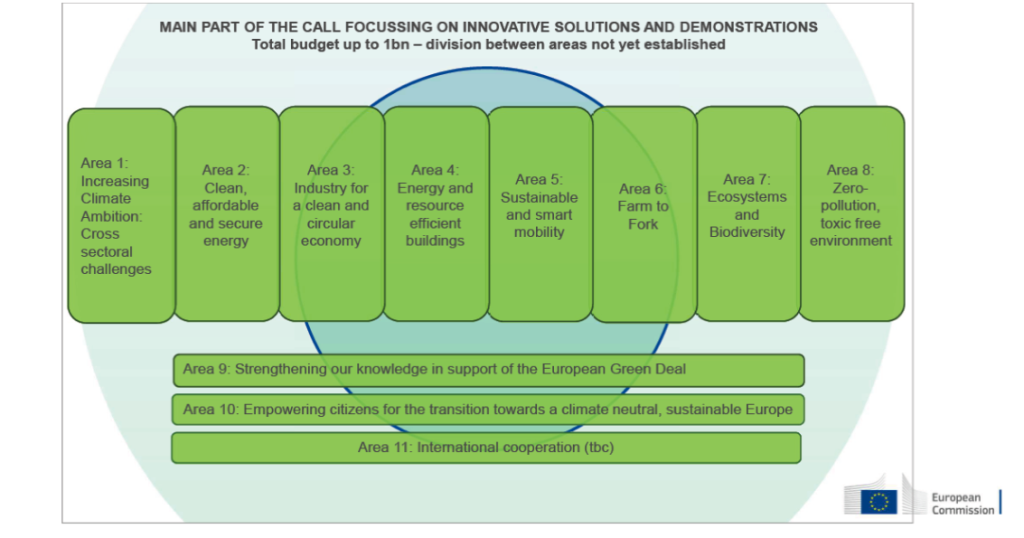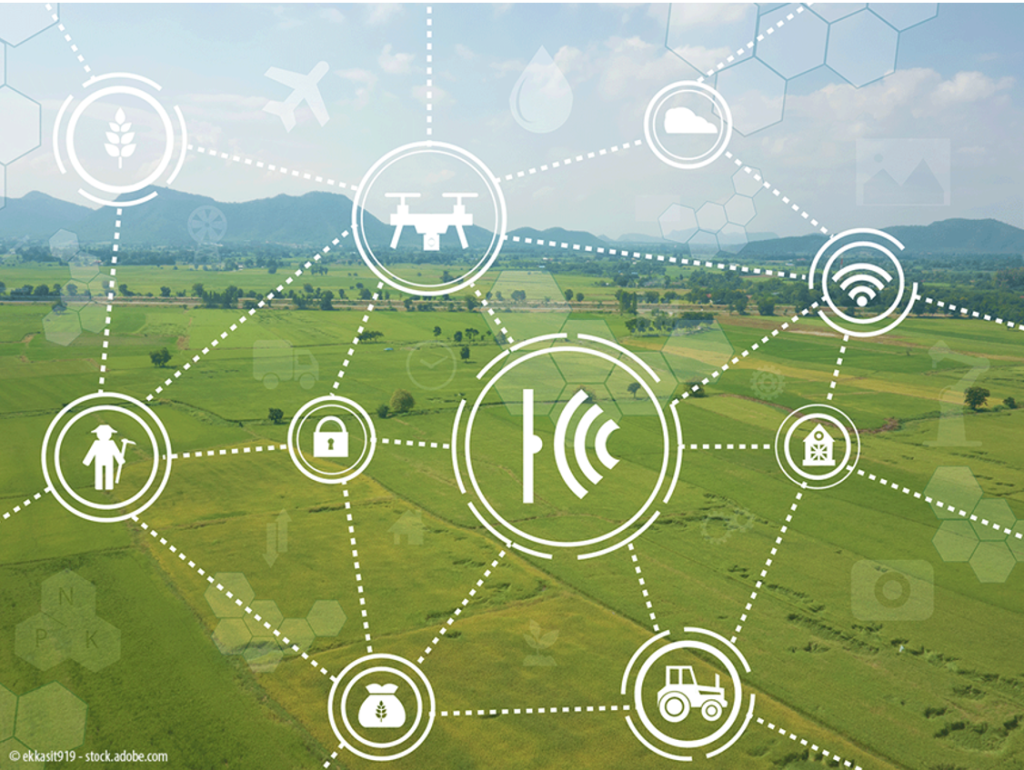HORIZON 2020
Horizon 2020 is the biggest EU Research and Innovation (R&I) program ever with nearly €80 billions of funding available over 7 years (2014 to 2020) – in addition to the private investment that this money will attract. It is divided into 3 pillars and 2 specific objectives corresponding to its main priorities:
-
The Excellent Science part supports the world-class science in Europe, by developing, attracting and retaining research talent and supporting the development of the best research infrastructures.
-
The Industrial Leadership pillar supports key technologies, such as advanced manufacturing, etc. across existing and emerging sectors. It also aims at attracting more private investment into R&I and supporting the increase of innovative SMEs in Europe.
-
The pillar of Societal Challenges supports R&I that target society and citizens (climate, environment, energy, transport, etc.). It supports the development of breakthrough solutions coming from multi-disciplinary collaborations, which include social sciences and humanities.
Earth observation relevant grants are mainly found under the Societal challenge 5 and the H2020 Leadership in Enabling and Industrial Technologies – Space Programme.
Horizon 2020 European Green Deal Call
In 2020, the European Commission launched a €1 billion call for R&I projects that respond to the climate crisis and help protect Europe's unique ecosystems and biodiversity. This Green Deal Call differs in important aspects from previous Horizon 2020 calls. Given the urgency of the challenges it addresses, it aims for clear, discernible results in the short to medium-term, but with a perspective of long-term change. There are fewer, but more targeted, larger and visible actions, with a focus on rapid scalability, dissemination and uptake.
The projects funded under this call are expected to deliver results with tangible benefits in ten areas:
Eight thematic areas reflecting the key work streams of the European Green Deal and two horizontal areas - strengthening knowledge and empowering citizens, which offer a longer-term perspective in achieving the transformations set out in the European Green Deal.

There are several areas where use of Earth Observation is included, for example in:
-
The Area 1 has topics on Preventing and fighting extreme wildfires with the integration and demonstration of innovative means (topic 1.1) and Climate-resilient Innovation Packages for EU regions (topic 1.3).
-
The Area 9 has a dedicated topic on Developing end-user products and services for all stakeholders and citizens supporting climate adaptation and mitigation (topic 9.2).
Under the "Other Actions" heading, additional support is foreseen for Delivery of knowledge for climate adaptation and mitigation through the GEOSS infrastructure (Global Earth Observation System of Systems).
European Green Deal Factsheet.
HORIZON EUROPE
HORIZON EUROPE (2021-2027) will succeed Horizon 2020. The strategic planning process is in particular focused on the Global Challenges and European Industrial Competitiveness pillar of Horizon Europe. The Global Challenges pillar includes seven Cluster.
Earth Observation will particularly be supported under Cluster 4 ‘Digital, Industry & Space’ and Cluster 6 ‘Food, Bioeconomy, Natural resources, Agriculture and Environment’.

European Research Area and Partnership on Agriculture of Data
The Research framework programs are complemented by measures to further develop the European Research Area (ERA) in order to create a single, borderless market for research, innovation and technology across the EU, help countries be more effective together and enable the free circulation of researchers and knowledge.
Download the new European research area based on excellence competitive, talent-driven and open (published 2020-10-01).
The European Partnership on Agriculture of Data proposes co-fund actions from the European Commission and the Member States on “Environmental Observations for a sustainable EU agriculture”. The objective of the partnership is to support sustainable agricultural production and policy monitoring and implementation in the EU by using the possibilities current digital and data technologies in combination with environmental and Earth observations offer.

The Copernicus Programme
Copernicus is the European Programme for the establishment of a European capacity for Earth Observation. Funding opportunities cover grants and public procurements, calls, competitions and prizes and specific opportunities for public authorities, start-ups and education.
Funding opportunities under Copernicus.
| Originally Published | 19 Apr 2021 |
| Knowledge service | Metadata | Earth Observation | Research & Innovation |
Share this page
